On December 21, 2019, the symposium on the National Key Research and Development Programs, organized by the Fudan University Key Laboratory of Ultra-Complex Networks and Intelligent Systems (in preparation) and co-hosted by the Shanghai Society for System Simulation, was held at the Crowne Plaza Fudan Shanghai. The event was attended by team members from various projects under the National Key R&D Program, including “Development and Application of Key Technologies for Cyber-Physical Fusion in Smart Cities” from the "IoT and Smart Cities" special program, “High-Trust Spatiotemporal Data Technologies and Applications for BRICS Countries,” “Research on Smart City Decision-Making Models and Big Data Analysis Methods Based on Outdoor Smart Lighting Systems” under the "Key Technologies and System Integration for Outdoor Smart Lighting" special program, and “TB-Scale Persistent Memory Storage Technologies and Systems” under the "Cloud Computing and Big Data" special program, along with over ten domestic experts. The participants engaged in academic exchanges and discussions.
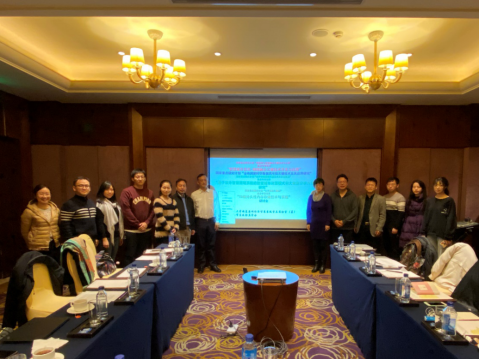
The symposium focused on discussions surrounding key projects under the National Key Research and Development Programs. Each project team presented reports on their respective research backgrounds, technical approaches, progress, and anticipated outcomes, followed by discussions among experts and project members.
On the morning of December 21, Professor Dingding Han, a council member of the Shanghai Society for System Simulation and a professor at Fudan University, delivered the opening remarks. The morning session was chaired by Associate Professor Haiping Shen.
Professor Han presented a report titled "Smart City Visualization Based on Ultra-Complex Network CPS Systems," emphasizing that the development of smart cities is driven by both demand and technological advancements, with the ultimate goal of achieving practical application of project outcomes. Professor Lei Zhang from Tongji University, in his report "GNSS Spatiotemporal Data Fusion and Multi-Scenario Application Research," shared insights on spatiotemporal data research, utilizing multidimensional features including time, space, and attributes. Professor Linpeng Huang from Shanghai Jiao Tong University, in his report "Hybrid Memory Computing Technology for Big Data," discussed the growing strategic importance of efficiently processing big data, highlighting the transition of software-defined PM (Persistent Memory) from concept to reality.
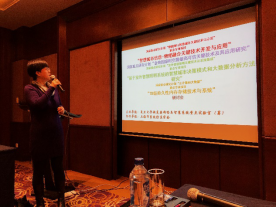
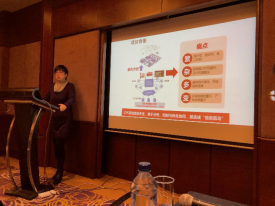
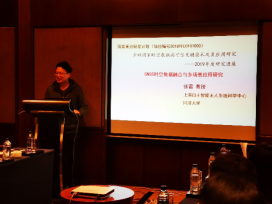
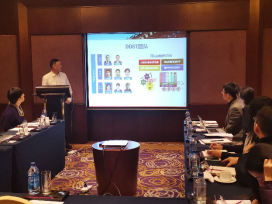
The afternoon session on December 21 was chaired by Professor Dingding Han. Associate Professor Haiping Shen from Fudan University presented a report titled "Assessment of Road Lighting Quality and Its Application in Outdoor Smart Lighting Systems," where he briefly introduced the relationship between light, humans, and IoT, highlighting the bidirectional interaction between light and people enabled by technological advancements.
Mr. Hao Zheng, General Manager of Shanghai Poli Information Technology Co., Ltd., demonstrated visualization technologies empowering industrial manufacturing, emphasizing that "empowerment" in the industrial IoT context translates to efficiency improvements.
Associate Researcher Bo Tian from East China Normal University delivered a presentation on "Classification of Coastal Salt Marsh Vegetation Using Radar Remote Sensing Time-Series Backscattering Features." He discussed the challenges in salt marsh vegetation classification, leveraging time-series scattering feature analysis, cloud platforms, and big data classification methods.
Dr. Wenyi Li from the Philips Research Institute presented a report on "Driver-Centric Ergonomics in Road Lighting." Her presentation introduced a measurement system and method for wet road surface reflectance in rainy conditions and explored smart lighting strategies for critical road safety points.
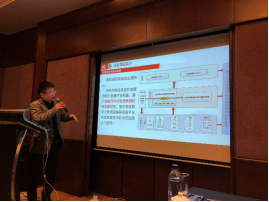
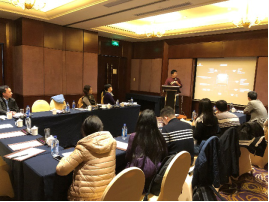
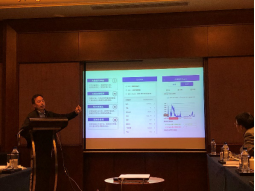
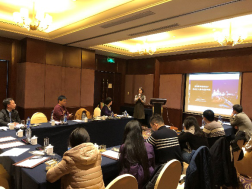
The conference presentations sparked enthusiastic discussions and positive responses among the attending scholars, who generally found the sessions highly beneficial. The symposium concluded successfully in an atmosphere of lively academic exchange.
